Filter by
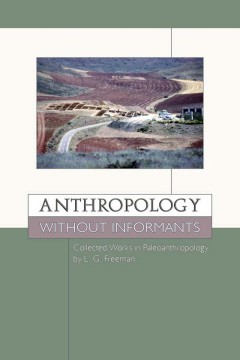
Anthropology without informants : collected works in paleoanthropology
"It is my sincere hope that this volume will be much read and reflected upon by new generations of American students of prehistoric archaeologists. Freeman's career is a model for long-term international collaboration, theoretical eclecticism, the centrality of field research, and the ability to 'dream big,' but with a commonsense approach to the record and its limitations." Lawrence Guy Straus…
- Edition
- -
- ISBN/ISSN
- 9781607327066
- Collation
- 376p. : ill
- Series Title
- -
- Call Number
- 936.6 FRE a
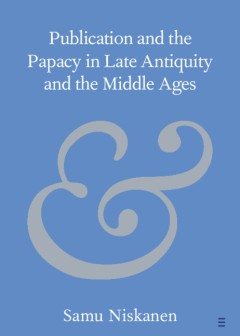
Publication and the papacy in late antiquity and the middle ages
This Element explores the papacy's engagement in authorial publishing in late antiquity and the Middle Ages. The opening discussion demonstrates that throughout the medieval period, papal involvement in the publication of new works was a phenomenon, which surged in the eleventh century. The efforts by four authors to use their papal connexions in the interests of publicity are examined as case …
- Edition
- -
- ISBN/ISSN
- 9781009111089
- Collation
- 108 PG.
- Series Title
- -
- Call Number
- 070.5094 PUB p
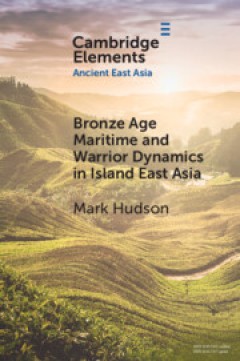
Bronze Age Maritime and Warrior Dynamics in Island East Asia
Recent interdisciplinary studies, combining scientific techniques such as ancient DNA analysis with humanistic re-evaluations of the transcultural value of bronze, have presented archaeologists with a fresh view of the Bronze Age in Europe. The new research emphasises long-distance connectivities and political decentralisation. 'Bronzisation' is discussed as a type of proto-globalisation. In th…
- Edition
- -
- ISBN/ISSN
- 9781108982955
- Collation
- 82 p ; ill
- Series Title
- -
- Call Number
- 959 BRO M
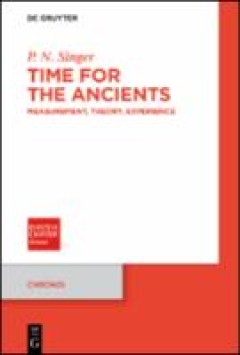
Time For The Ancients; Measurement, Theory, Experience
The book offers an overview of experiences, theories and conceptions of time in the Graeco-Roman world. It presents the results of new research on neglected medical texts, relating to time management, aging and times of life, and the importance of the accurate time assessment. At the same time it draws together the most important findings of much recent classical scholarship on ancient attitude…
- Edition
- -
- ISBN/ISSN
- 9783110752397
- Collation
- -
- Series Title
- -
- Call Number
- -
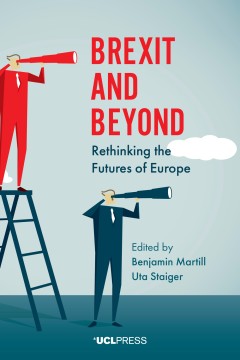
Brexit and beyond : rethinking the futures of Europe
Brexit will have significant consequences for the country, for Europe, and for global order. And yet much discussion of Brexit in the UK has focused on the causes of the vote and on its consequences for the future of British politics. This volume examines the consequences of Brexit for the future of Europe and the European Union, adopting an explicitly regional and future-oriented perspective m…
- Edition
- -
- ISBN/ISSN
- 9781787352759
- Collation
- xv, 291 p.
- Series Title
- -
- Call Number
- 341.24220941 BRE B
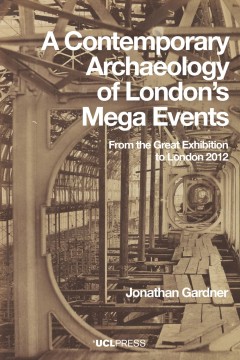
CONTEMPORARY ARCHAEOLOGY OF LONDONS MEGA EVENTS : from the great exhibition t…
A Contemporary Archaeology of London’s Mega Events explores the traces of London’s most significant modern ‘mega events’. Though only open for a few weeks or months, mega events permanently and disruptively reshape their host cities and societies: they demolish and rebuild whole districts, they draw in materials and participants from around the globe and their organisers self-consciousl…
- Edition
- -
- ISBN/ISSN
- 9781787358447
- Collation
- xiii, 279 p. ill;
- Series Title
- -
- Call Number
- 942.100909 CON J
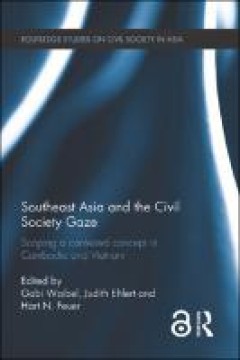
Southeast Asia And The Civil Society Gaze
As developing countries with recent histories of isolation and extreme poverty, followed by restoration and reform, both Cambodia and Vietnam have seen new opportunities and demands for non-state actors to engage in and manage the effects of rapid socio-economic transformation. This book examines how in both countries, civil society actors and the state manage their relationship to one another …
- Edition
- -
- ISBN/ISSN
- 9781134634293
- Collation
- -
- Series Title
- -
- Call Number
- -
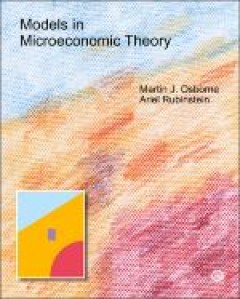
Models in microeconomic theory
Models in Microeconomic Theory covers basic models in current microeconomic theory. Part I (Chapters 1-7) presents models of an economic agent, discussing abstract models of preferences, choice, and decision making under uncertainty, before turning to models of the consumer, the producer, and monopoly. Part II (Chapters 8-14) introduces the concept of equilibrium, beginning, unconventionally, w…
- Edition
- -
- ISBN/ISSN
- 9781783749225
- Collation
- xv, 341p. : ill.
- Series Title
- -
- Call Number
- 338.5 OSB m
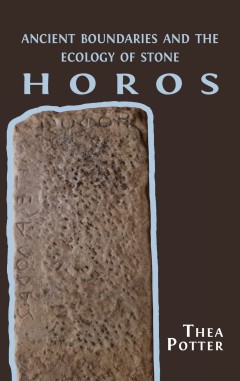
Horos : ancient boundaries and the ecology of stone
In Horos, Thea Potter explores the complex relationship between classical philosophy and the 'horos', a stone that Athenians erected to mark the boundaries of their marketplace, their gravestones, their roads and their private property. Potter weaves this history into a meditation on the ancient philosophical concept of horos, the foundational project of determination and definition, arguing th…
- Edition
- -
- ISBN/ISSN
- 9781800642683
- Collation
- xxxiii, 311p.
- Series Title
- -
- Call Number
- B188 POT h
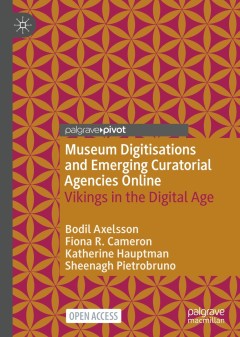
Museum digitisations and emerging curatorial agencies online : vikings in the…
This open access book explores the multiple forms of curatorial agencies that develop when museum collection digitisations, narratives and new research findings circulate online. Focusing on Viking Age objects, it tracks the effects of antagonistic debates on discussion forums and the consequences of search engines, personalisation, and machine learning on American-based online platforms. Furth…
- Edition
- -
- ISBN/ISSN
- 9783030806460
- Collation
- xv, 138p ; ill
- Series Title
- -
- Call Number
- 069.53 MUS m
 Computer Science, Information & General Works
Computer Science, Information & General Works  Philosophy & Psychology
Philosophy & Psychology  Religion
Religion  Social Sciences
Social Sciences  Language
Language  Pure Science
Pure Science  Applied Sciences
Applied Sciences  Art & Recreation
Art & Recreation  Literature
Literature  History & Geography
History & Geography